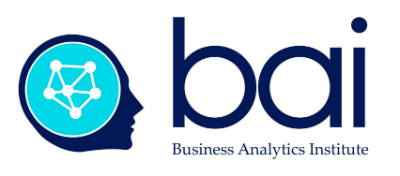
If our leaders are making up the facts as they go along, do we really need to look at the data?
Given the course of current events, I try to take a few minutes each day to read various interviews and analysis of our political and economic leadership on both sides of the “Pond”. Try as I might, I’m having trouble ignoring the claims of faked facts, fake news and radically divergent opinions. In an age where empirical data is omnipresent, I can’t help but worry that a significant percentage of our political and economic leadership seems to be making things up as they go along. Perhaps our daily realities are too complex, too uncertain, and too ambiguous to make sense of the data at hand. Perhaps our decision-making process is flawed when we tend to use the facts only to support our own beliefs and prejudices. In any case, we can legitimately ask whether data has become useless, or whether we need data more than ever.
Given the course of current events, I try to take a few minutes each day to read various interviews and analysis of our political and economic leadership on both sides of the “Pond”. Try as I might, I’m having trouble ignoring the claims of faked facts, fake news and radically divergent opinions. In an age where empirical data is omnipresent, I can’t help but worry that a significant percentage of our political and economic leadership seems to be making things up as they go along. Perhaps our daily realities are too complex, too uncertain, and too ambiguous to make sense of the data at hand. Perhaps our decision-making process is flawed when we tend to use the facts only to support our own beliefs and prejudices. In any case, we can legitimately ask whether data has become useless, or whether we need data more than ever.
Analytics isn’t a synonym for machine learning lodged in the Cloud, but a mindset that we take to work each day. There are a great number of methodologies available whose value depends both on the data at hand and the types of problems we are trying to solve. Decision trees are extremely useful in analyzing sets of qualitative data in which the solutions sought are contained in the data itself. Market basket analysis is used efficiently when dealing with categorical data in which the solutions aren’t known in advance. Various forms of regression analysis are helpful with continuous data in supervised learning environments. The value of analytics is tied less to the software we use than to ability to recognize the data and the problems with which we are dealing.
Improving decision-making is a question of understanding how data can help us take better decisions. Quantitative data, whether expressed as continuous measures, ordinal numbers or ratios offer us a lever for reducing the uncertainty inherent in management. Qualitative data, in the form of opinions, categories, and impressions, offer us a complementary line of inquiry. Perceptions of the physical context in which we interact offer us a rich source of primary data. Our lecture of the printed media provide secondary data with which to work. Our decision environment is never either wholly physical or digital, but a combination of the two filtered by our beliefs and experience.
If our objective as leaders and managers is to continuously improve our ability to take better decisions, data is more important than ever. Data on our own beliefs and experiences to understand how we address the problems at hand, Data on the context in which we interact to understand the scope for invention and innovation. Data on how others decide to appreciate how our own recommendations and proposals can be put into practice. In most cases we already have more data than we need, what we need are better handles with which to use it.
The practice of business analytics is heart and soul of the Business Analytics Institute. In our Summer School in Bayonne, as well as in our Master Classes in Europe, we put analytics to work for you and for your organization. The Institute focuses on five applications of data science for managers: working in the digital age, managerial decision making, machine learning, community management, and visual communications. Data-driven decision making can make a difference in your future work and career.

